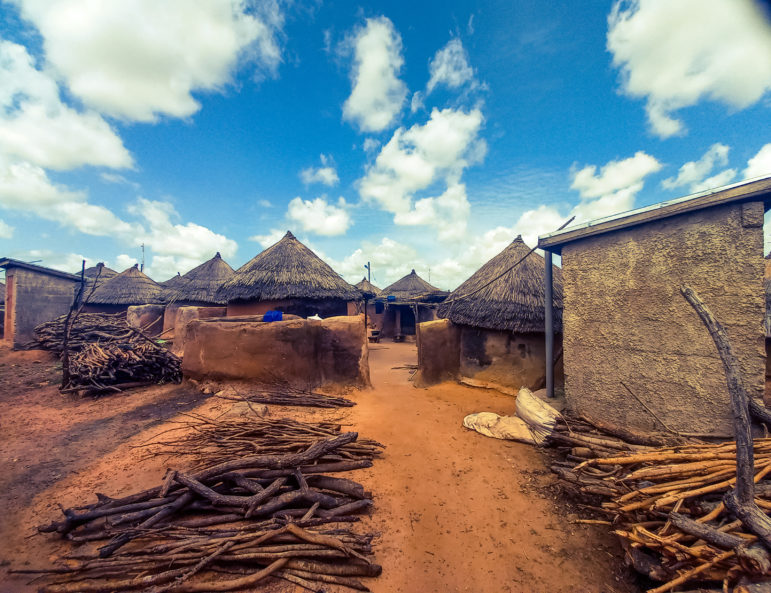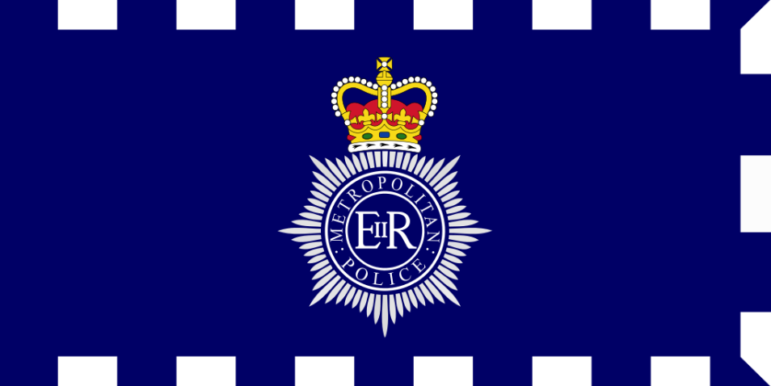Editorial Note: TWH uses quotations on “witches,” “witchcraft,” and “witch-hunt” to denote there appears no association with modern Pagan or Witchcraft practices. The victims of “witch-hunts” are usually not Pagans, Witches, or practicing any spiritual practice typically considered Pagan.
Content warning: Graphic depictions of violence
TWH – In late July the Human Rights Council of the United Nations adopted a resolution focused on eliminating accusations of “witchcraft” and ritual attacks but attacks, assaults, and murders continue to occur within African and other countries around the globe.
Last month, 74-year-old Silifatu Olawale, who is homeless and found to be mentally challenged, was rescued from a mob that intended to lynch her for practicing what they believed to be “witchcraft” in the Nigerian, Oyo State’s capital city of Ibadan.
Alhaja Kafilat Olayiwola Commissioner for Women Affairs and Social Inclusion told reporters, “… about two weeks ago, we received an urgent call about an unclad woman in front of the state secretariat main entrance gate who was wrongfully accused of being a witchcraft thereby leading to serious beating, we swung into action immediately and rescue her from being lynched by the angry mob.”
She continued, “We took her to one of our centres for adequate care and protection and thank God that today, the State government has rehabilitated her and she now in her stable mind to return to her family hale and hearty.”
While Olawale’s story has a seemingly happy ending, the same is not true for many others.
In the Indian state of Andhra Pradesh, and the Bhagmaravalasa village within the Visakhapatnam district (formerly known as Vizagapatam district) three men were murdered after Gollori Dombu fell sick and believed that Killo Komati and his family were “Tonhi,” a term that means practicing “witchcraft.”
Dombu and his family members attacked and murdered Killo Komati, and severely injured his two sons, Balaram and Bhagwan Komati. In retaliation, Komati’s family attacked and murdered Dombu and his son, Subba Rao.
In South Africa, 59-year-old Jostina Sangweni, who was diagnosed with schizophrenia, was murdered in the Mapetla, Soweto township of Johannesburg in March. She was assaulted and set on fire by a mob who believed she was a “witch, and later died from her injuries in the hospital.
The case brought international outrage, and even eventually two people, Collen Sello, 27, and Taelo Dipholo, 28, were charged with the crime and continue to be held without bail. An unnamed third person involved in the killing has recently been taken into custody, but their arraignment was rescheduled last week due to court employee testing positive for COVID-19, they are expected back in court later this week.
These recent reports are just a sampling of the murders that continue to be perpetrated against women, and men, many of whom have some form of mental illness.
Meanwhile, in Ghana, the debate continues over what to do with the six “witch camps” which provide a safe haven for over 1,000 women and some 700 children. Professor Jane Naana Opoku-Agyeman, 2020 Vice Presidential Candidate of the National Democratic Congress (NDC) made an appeal to the country’s government to resolve the conditions that necessitate the need for the camps.

Health facility in the Gambaga “witch” camp in Ghana – Image credit: AbdulFatawu18 – CC BY-SA 4.0
In her statements during her recent visit to the Leli Dabari camp in the Gushegu Municipal, Opoku-Agyeman said, “As a woman, I feel their pain and worry and, therefore, plead with the government to come to the aid of these women. Together let us disband this camp and move them back home to join their families. This practice has become an indictment on the conscience of our society.”
“Let us not get to a level where we think this is acceptable. Wherever we are, we must join forces to bring an end to this barbaric act,” she stressed.
She concluded with, “We need to raise public awareness through public education and find lasting solutions, because these conditions make mockery of long life which is a blessing. Everyone must help get out of this trap – government, community, family, everyone has a role to play.”
The conditions in the camps are often destitute, with limited access to food and water, and survivor accusations of living in very small mud huts.
Sadly, it is currently the only option for those who have been accused of being “witches,” since to return to their own villages would result in beatings, torture, and death.

A view of part of the huts within the Gambaga “witch” camp – Image credit: Salifu Memunatu – CC BY-SA 4.0
The Ghanaian government has struggled to find a solution that would end the need for the camps, end the practice of “witchcraft” beliefs and accusations, and ensure the safety of the women most vulnerable.
The influence of the beliefs that drive such accusations and violent attacks is not limited to countries like Ghana, Nigeria, and Indian states.
Recently the London Metropolitan Police announced officers would begin new training to better help them recognize child abuse that is related to “witchcraft” beliefs. This announcement follows over two decades of increase in cases of children suffering abuse due to a belief in “witchcraft” or that the child is possessed.

Flag of the London Metropolitan Police
One of the most well-known cases was the abuse, torture, and murder of Victoria Climbié in 2000, by her aunt Marie Thérèse Kouao and aunt’s boyfriend, Carl Manning in the town of Tottenham in the north London Borough of Haringey. Climbié’s parents thought by sending her to the U.K., she would have a happier life with more opportunities than if she stayed with them in the Ivory Coast. Instead, the move to the U.K. resulted in her death.
Police officers often lack the specific training to detect abuse cases when there are cultural factors in play that are frequently complicated and mistaken or confused with other issues.
“Cases are often missed or misdiagnosed. “Practitioners may not recognise the risk of harm involved, chalking up these accusations to mental health problems or delusion,” Inspector Allen Davis told the BBC.
“We need a concerted and co-ordinated response, where this issue is ‘championed’ locally so that it ceases to be viewed as a taboo issue and hidden harm,” Allen continued.
“Despite its complexity and the cultural sensitivities involved, we need to mainstream our response and ensure professionals are confident to discuss beliefs in a careful but direct and professionally curious manner,” he concluded.
The effort to provide more training to officers is supported and coordinated with the London Borough of Redbridge, Chester, and Cambridge universities, and Barnardo’s National Female Genital Mutilation Centre.
Authorities also made a point to differentiate between beliefs surrounding “witchcraft” as it relates and is defined in abuse cases, and Pagan practices like Wicca, which is recognized as a religion and includes the practice of Witchcraft as a positive aspect of the belief system.
The U.N. Human Rights Council’s resolution condemning the harmful practices associated with accusations of witchcraft and ritual attacks (HPAWR) is a step in the right direction, as is the new training for London police officers.
As HPAWR makes clear, until education, healthcare that includes mental health, and changes to justice systems making them more robust and better able to address human rights abuses become the standard, the legacy of “witch-hunts” will continue.
The Wild Hunt is not responsible for links to external content.
To join a conversation on this post:
Visit our The Wild Hunt subreddit! Point your favorite browser to https://www.reddit.com/r/The_Wild_Hunt_News/, then click “JOIN”. Make sure to click the bell, too, to be notified of new articles posted to our subreddit.
